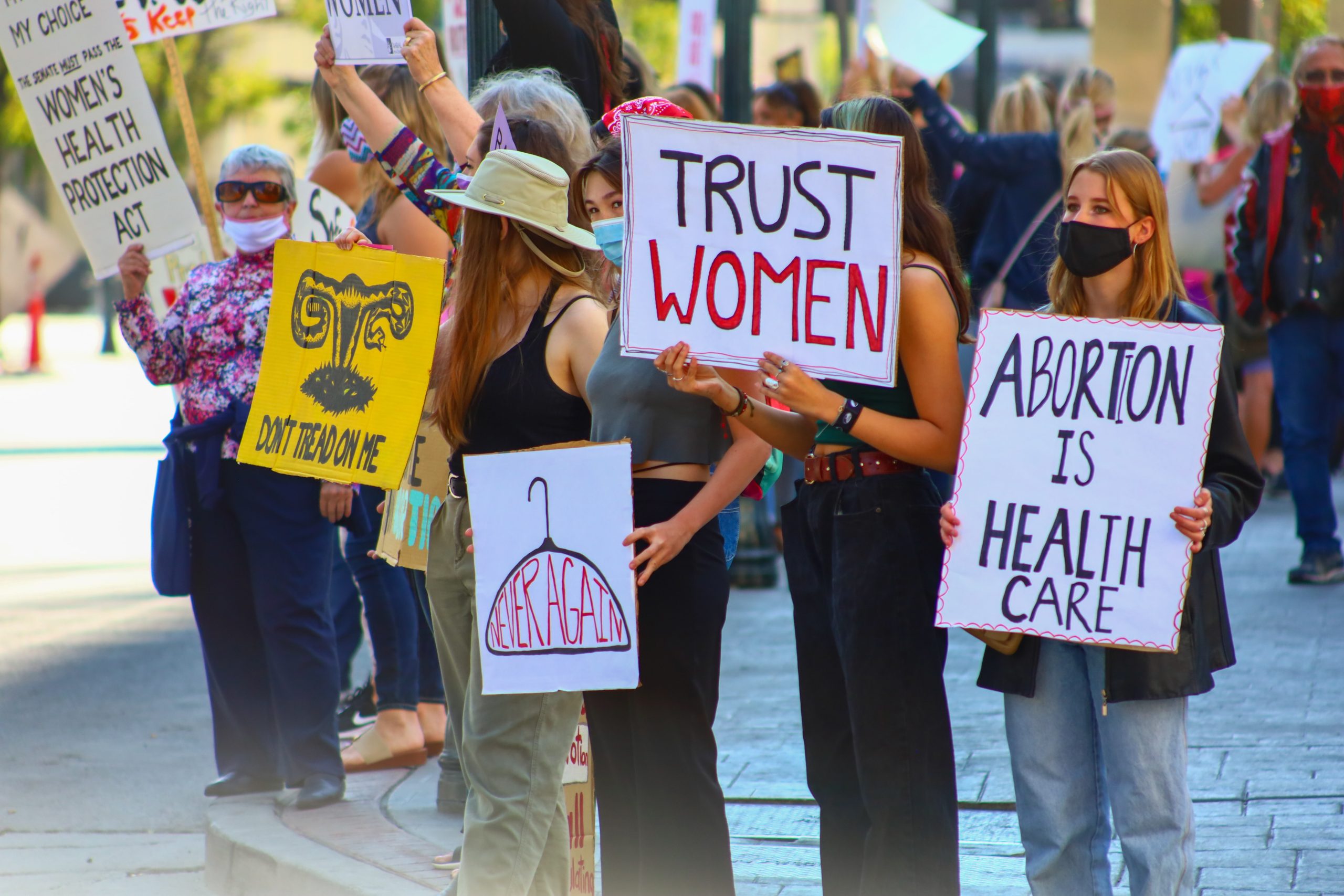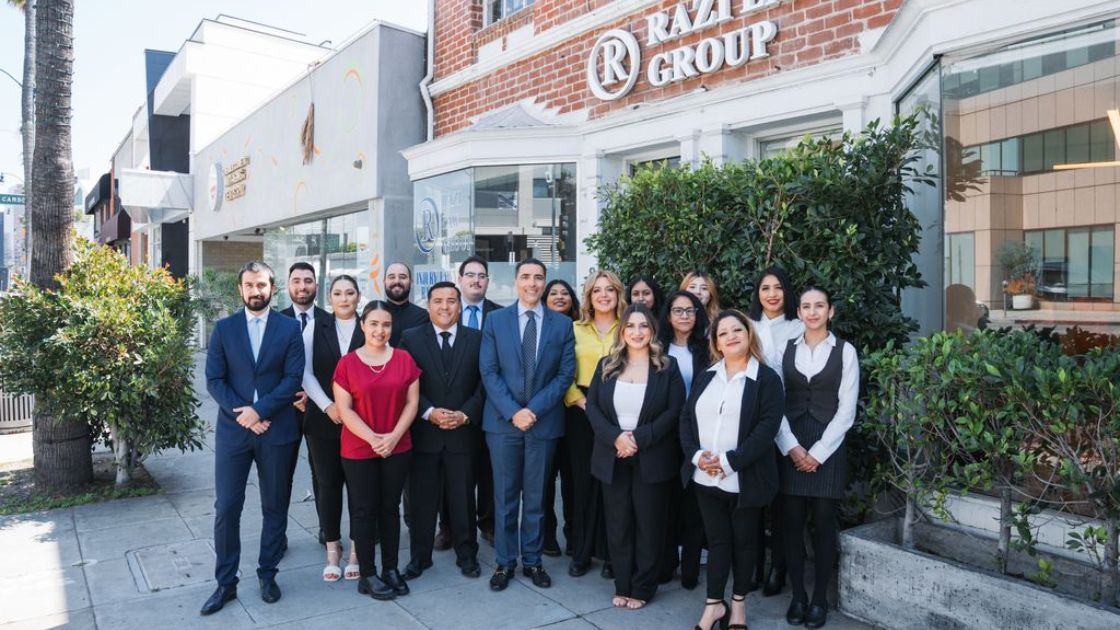Law Government
What’s Next for Abortion Rights in America? The Future of Choice and Control

Abortion rights have been a contentious issue in America for decades, and with the recent appointment of Justice Amy Coney Barrett to the Supreme Court, many are wondering what’s next for reproductive justice. Will Roe v. Wade be overturned? Will access to safe, legal abortion become even more restricted? In this blog post, we’ll explore the future of choice and control in America and what actions we can take to ensure that everyone has the right to make decisions about their own bodies. Get ready for an insightful and thought-provoking read on one of the most important issues facing our country today.
The history of abortion in America
The history of abortion in America is long and complex. Prior to the Roe v. Wade decision in 1973, abortion was illegal in most states. However, there were a few states that had already decriminalized abortion, and there were also a few states that had legalized abortion for special circumstances like rape or incest.
The Roe v. Wade decision changed all of that by making abortion legal nationwide. This landmark ruling led to a significant increase in the number of abortions performed each year in the United States. In fact, according to data from the Guttmacher Institute, there were over 1.6 million abortions performed in 1973 alone.
However, the legality of abortion has always been hotly contested. There have been numerous attempts to overturn Roe v. Wade and make abortion illegal once again. And while those efforts have so far been unsuccessful, they have taken their toll on access to abortion services. Today, there are many states with very restrictive laws governing abortion access, and as a result, many women are forced to travel long distances or even out of state in order to obtain an abortion.
Looking to the future, it is impossible to say definitively what will happen with abortion rights in America. However, it seems likely that the fight for reproductive freedom will continue for many years to come.
Roe v. Wade and its impact
In 1973, the U.S. Supreme Court handed down its decision in Roe v. Wade, which recognized a woman’s right to end her pregnancy. The ruling was a watershed moment for reproductive rights in America, and it has been under constant attack ever since.
Anti-choice forces have chipped away at Roe by enacting restrictions on abortion access, such as mandatory waiting periods, parental consent laws, and bans on public funding for abortion care. These measures make it harder for women to get abortions, but they haven’t been able to overturn Roe outright.
Now, with the addition of two conservative justices to the Supreme Court, there is a real possibility that Roe could be overturned in the near future. This would be a devastating blow to reproductive rights in America, and it would have a particularly harsh impact on low-income women and women of color who already face significant barriers to accessing quality health care.
If Roe is overturned, it will be up to individual states to decide whether or not to allow abortion. We can expect to see a patchwork of laws across the country, with some states banning abortion outright and others continuing to provide access to this essential medical procedure.
It’s important to remember that even if Roe is overturned, the fight for reproductive rights is far from over. We must continue to fight for access to safe and legal abortion care for all women, no matter where they live or how much money they make.
The current state of abortion rights in America
The past few years have been a roller coaster for abortion rights in America. In 2017, then-President Donald Trump signed an executive order banning federal funding for overseas NGOs that provide abortions. In 2018, Trump’s administration proposed a domestic gag rule that would have prevented federally funded clinics from providing abortion referrals. And in 2019, the administration issued new rules allowing employers to opt out of birth control coverage for religious or moral reasons.
These attacks on reproductive rights have been met with resistance from pro-choice advocates, who have fought back in the courts and at the state level. In 2020, several states passed laws expanding access to abortion, and the Supreme Court ruled against a Louisiana law that would have placed undue burdens on abortion providers.
Looking ahead, it is clear that the fight for reproductive rights will continue. With Trump out of office and a more pro-choice administration in power, there is potential for positive change at the federal level. But reproductive rights are still under attack in many states, and it will take continued effort to ensure that all Americans have access to safe and legal abortions.
The future of abortion rights in America
Although the future of abortion rights in America is uncertain, there are many ways that we can continue to fight for our reproductive rights. Here are some things that you can do to help protect abortion rights in America:
-Educate yourself and others about abortion rights and why they are important.
-Support organizations that provide abortions services and advocate for reproductive rights.
-Vote for candidates who support abortion rights.
-Call your representatives and tell them that you support abortion rights.
We have to be proactive if we want to protect our reproductive rights in America. By educate ourselves and others about the issue, supporting pro-choice organizations, and voting for pro-choice candidates, we can help ensure that abortion remains legal and accessible in America.
What this means for women’s choice and control
In the wake of Roe v. Wade, abortion rights have been under attack in America. In recent years, we’ve seen more and more states pass laws that restrict women’s access to abortion. These laws are often justified in the name of “protecting women’s health.”
But what do these restrictions really mean for women’s choice and control?
For one thing, they often force women to travel long distances and incur significant costs in order to obtain an abortion. This can be a huge burden, especially for low-income women.
Furthermore, these laws often require women to undergo unnecessary and invasive procedures, such as ultrasounds. And they subject them to waiting periods, which can delay the procedure and add even more stress to an already difficult decision.
All of these restrictions make it harder for women to get the abortions they need. And that’s exactly what opponents of abortion rights want: to make it as difficult as possible for women to exercise their right to choose.
So what does the future hold for abortion rights in America? Unfortunately, it’s hard to say. But one thing is clear: we need to keep fighting for our rights, no matter what.
Law Government
Parking Lot Hit and Run: What to Do If You’re a Victim?

Introduction
Parking lots are the busiest places with cars moving in and out, and unfortunately, accidents are common here. But when a pedestrian or driver faces a hit-and-run, it’s more complicated, frustrating and stressful. Hit and run is basically when a driver hits you and flees the scene, without taking any responsibility. Whether it’s a minor or serious injury caused by the driver, you may feel helpless and confused about what to do next.
Well, knowing the proper steps to take after an accident is crucial to protect your rights. Knowing what to do can help you protect your rights, assist in insurance claims, and even increase your chances of holding the person at fault accountable. This article will walk you through the steps you should know if you’re a victim of hit and run in a parking lot.
Understanding Parking Lot Hit and Run Accident
Hit and run accidents are quite common, not only in parking lots, but everywhere. Well, these accidents leave you confused, physically injured and emotionally devastated. But what causes these accidents? Well, it can be due to a lot of causes, such as distracted drivers, poor visibility. These accidents are common, but what makes these accidents challenging is the driver who caused the damage and fled the scene.
Steps to Take Right After a Hit and Run in a Parking Lot
1. Prioritize Your Safety
Your safety is over anything! So if you’re hit by a car, move to a safe area where there are no moving vehicles or anything hazardous. And check yourself and your passengers, if they are hurt or injured anywhere. Even if everything seems fine, it is advisable to pay a visit to a doctor. Some injuries might not be immediately visible, so seeking medical attention is crucial.
2. Document the Scene and Damage
If your vehicle was also hit, or if you were struck as a pedestrian, you should gather evidence such as:
- Clear photos and videos of the damage caused to your vehicle. Record the surrounding areas, too, for any debris or paint marks left by the other car.
- Note the exact location, date, and time of the incident.
- Look, if there are any eyewitnesses who might have seen the scene or the fleeing vehicle. Ask for their contact number to get in touch with them.
- Moreover, check out the surveillance cameras in the parking lot to get a recording of the accident.
3. Report the Incident
Reporting the incident is a crucial step after a hit-and-run in a parking lot. Call the police, file a report that creates the official date of the accident. Now, you might be wondering why this is important. Well, this is often required by the insurance companies to identify the responsible driver. When filing a complaint, provide all the evidence you have collected, such as videos, photos, and witness statements.
4. Notify Your Insurance Company
Get in touch with your insurance provider to report the hit and run accident. Provide them with your police report number and all the documents you’ve gathered. Depending on your policy, the insurer may cover the damages under collision motorist coverage. This step is essential in order to begin your claims process and even get compensation for repairs and medical bills.
Additional Tips for Handling a Hit and Run Parking Lot Incident
1. Stay Calm and Avoid Confrontation
If you ever witness a hit and run accident, or you are involved in one, you may feel frustrated, angry and upset, but make sure you never chase or confront a fleeing driver. This attempt can be dangerous, and prioritizing your safety is crucial. Instead, you should focus on gathering information, evidence and then report the incident to the authorities.
2. Check for Injuries and Seek Medical Attention
If you were physically hit or injured in hit and run, you should seek medical help as soon as possible. Even if the injuries feel minor, you should reach out to a doctor to ensure you’re in good health. Moreover, some injuries don’t show up immediately.
3. Preserve All Evidence and Records
When you have various pieces of evidence, you should always keep copies of them. Keep all documents related to the incident such as police report, insurance correspondence, medical bills, and repair estimates. This evidence and records are essential to take further legal steps.
Legal Options and Seeking Professional Help
Navigating hit and run accidents is often complex, especially when the driver remains unidentified. But consulting a hit and run lawyer is essential to understand your rights and options. An attorney can help you with:
- Investigating the incident and working with law enforcement to track down the responsible driver.
- Navigating insurance claims and ensuring you receive fair compensation.
- Representing you in court if necessary to recover damages for injuries, vehicle repairs, or emotional distress.
Preventive Measures to Protect Yourself in Parking Lots
You can’t control how others drive, but you can take some precautions to reduce the risk of hit and run in a parking lot.
- Park in well-lit, busy areas where surveillance cameras are there to capture in case anything happens.
- Always lock your vehicle and be aware of your surroundings when entering or leaving your car.
- If possible, take photos of your parked car before leaving it in unfamiliar or high-risk areas.
- Report any suspicious behaviour or reckless driving in parking lots to property management or security.
In a Nutshell!
Being a victim of hit-and-run in a parking lot is stressful and unsettling, but when you’re aware about what you can do in these situations, you can protect your rights and recover the losses. But make sure you’re prioritizing your safety always. Document everything, report to the police, and notify your insurance company to make sure your rights are protected. And, if the responsible driver can be identified, nothing better than that. Legal professionals can help you explore your options for compensation. Just follow the steps promptly and navigate the aftermath.
Law Government
Johnson Vorhees Martucci: Trusted Birth Injury Lawyer in Joplin

Introduction
Welcoming a child into the world should be one of the most joyous and memorable moments of a parent’s life. The anticipation, excitement, and love surrounding the birth of a baby are unlike anything else. Unfortunately, for some families, this special time turns tragic due to preventable medical mistakes. A birth injury can leave lasting physical, emotional, and financial challenges. At Johnson Vorhees Martucci (JVM), we understand the pain families endure when a trusted medical professional fails to provide safe care. Our mission is to stand beside you, advocate for justice, and secure the resources your child needs for a better future.
What Are Birth Injuries?
Birth injuries occur when an infant is harmed before, during, or immediately after delivery due to complications or medical negligence. While some injuries may be minor and resolve quickly, others cause lifelong disabilities that require ongoing treatment. Common types of birth injuries include:
- Cerebral Palsy: Caused by brain damage due to oxygen deprivation, leading to impaired movement and muscle control.
- Brachial Plexus Injuries: Nerve damage that affects the arms and shoulders, often resulting in weakness or paralysis.
- Fractures and Broken Bones: Sometimes caused by the improper use of delivery tools.
- Brain Damage: Often linked to prolonged labor, delayed C-sections, or failure to monitor fetal distress.
- Developmental Delays: Resulting from untreated complications during delivery.
Not every complication is preventable, but many occur because medical providers fail to act with appropriate skill and care. When mistakes such as delayed diagnoses, improper use of medical equipment, or failure to monitor vital signs happen, families deserve answers and accountability.
How Birth Injuries Affect Families
The impact of a birth injury reaches far beyond the delivery room. Parents often face overwhelming medical expenses for surgeries, therapies, and specialized care. Depending on the severity, children may require adaptive equipment, lifelong medication, or even in-home nursing support.
Beyond financial stress, families endure emotional struggles—fear for their child’s future, frustration with unanswered questions, and the grief of lost expectations. Siblings and extended family members are also affected as daily life changes dramatically. Seeking justice through legal action is not just about compensation—it is about giving families hope, security, and a voice in holding negligent parties accountable.
The Role of an Experienced Attorney
Navigating a birth injury case requires legal and medical knowledge, detailed investigation, and relentless advocacy. These cases are complex because hospitals and insurance companies often work hard to deny responsibility. That is why choosing the right attorney is critical.
A skilled lawyer will:
- Collect and analyze medical records to identify errors.
- Work with medical experts to establish negligence.
- Calculate current and future financial needs, including therapies, special education, and lost earning capacity.
- Handle negotiations with insurance companies determined to minimize payouts.
- Represent families in court, if necessary, to fight for full justice.
Parents should never have to go through this process alone. An attorney ensures the truth comes to light and that families have the support they need during one of the most difficult times of their lives.
Why Choose Johnson Vorhees Martucci
At Johnson Vorhees Martucci, we have built our reputation on compassion, dedication, and proven results. Our attorneys have decades of combined experience representing families in medical malpractice and personal injury cases. We know how devastating birth injuries can be, and we are committed to fighting tirelessly for the compensation your family deserves.
What sets us apart?
- Experience: We have handled numerous birth injury claims, securing justice for families against hospitals and medical providers.
- Resources: Our firm works with leading medical experts to investigate cases thoroughly.
- Compassion: We treat every family with respect, dignity, and care, knowing the challenges you face.
- Results: We have achieved significant verdicts and settlements, ensuring children have access to lifelong care and resources.
When you partner with JVM, you are not just hiring attorneys—you are gaining a team dedicated to standing with you at every step of the journey.
Taking the First Step Toward Justice
If you believe your child’s birth injury was preventable, time is of the essence. Medical malpractice claims must be filed within specific time limits known as statutes of limitation. Acting quickly allows evidence to be preserved, medical experts to review the case, and legal strategies to be built effectively.
At Johnson Vorhees Martucci, we make this first step as simple as possible. We offer free consultations where families can share their story, ask questions, and learn about their options. There is no obligation, and our attorneys will provide clear, honest guidance about your case.
Equally important, we operate on a contingency fee basis. This means you pay nothing upfront and no attorney fees unless we win compensation for your family. Our focus is on relieving your burden so you can prioritize your child’s care.
Empowering Families Through Justice
A birth injury changes lives, but it should not define your child’s future. With strong legal representation, you can secure the resources necessary to provide therapy, education, and opportunities for growth. You can also ensure that negligent medical providers are held accountable, preventing future harm to other families.
At Johnson Vorhees Martucci, we believe every child deserves the chance to thrive. We are here to fight for justice, provide peace of mind, and support families in rebuilding their lives after tragedy.
If you are searching for a trusted birth injury lawyer joplin, know that Johnson Vorhees Martucci is ready to stand with you. Our team has the experience, compassion, and determination to protect your rights and secure a brighter future for your child.
Law Government
Wrongful Death Claims in California: A Guide for Grieving Families

Introduction
“This guide covers California wrongful death claims, including who can file one, what damages can be claimed, time limits, and how a dedicated Los Angeles injury attorney can help.”
We at Razi Law Group know how hard it is to lose someone you love. When someone else is careless or does something wrong that causes the loss anger and confusion usually make the grieving worse. Families need someone who cares is clear and fights for them during these tough times. As experienced abogados de lesiones personales los angeles, we are here to help you with the legal procedure with care and support so you can focus on getting better.
What Constitutes a Wrongful Death Claim in California?

Image by: Yandex.com
In California a wrongful death is caused by someone else’s wrongful act or neglect. This means that if someone had a personal injury claim before they died, their family can now file a claim on their behalf. Car accidents medical negligence industrial accidents or faulty products are some of the most common reasons for these kinds of claims. The main question is whether the other person’s lack of reasonable care caused your family’s terrible death.
Who Is Eligible to file a Wrongful Death lawsuit?
The law is specific about who can bring a claim and typically the immediate family is eligible. This includes the surviving spouse, domestic partner, and children. If there is no immediate family, anyone who would be entitled to the person’s property under California’s inheritance laws may bring the action, such as parents or siblings. A skilled personal injury attorney Los Angeles California can help determine your specific standing to file a claim.
California law says which family members can file a wrongful death claim. Usually the right goes to the immediate family which includes the surviving husband or domestic partner and children. If there are no immediate survivors the right may go to parents siblings or other people who would get it under state law. It might be hard to figure out exactly who is eligible so it is important to talk to an experienced personal injury lawyer to grasp your family legal situation and rights at this tough time.
What Types of Damages Can Be Recovered?
A wrongful death claim asks for financial assistance or damages to make up for the losses your family has suffered. Even while no amount of money can bring back your loved one, it can help you get back on your feet financially. Recoverable damages often include:
- Funeral and burial expenses.
- The financial support the deceased would have contributed.
- The loss of gifts or benefits expected from the loved one.
- The value of the household services the deceased provided.
- The loss of love, companionship comfort or care and guidance.
What Is the Statute of Limitations?
Time is really important. The wrongful death case in California usually has to be filed within two years of the person’s death. If you miss this severe deadline, your family may never be able to get justice and money. As soon as you can, you should talk to a personal injury attorney LA to make sure you meet all the necessary deadlines and keep all the evidence.
You only have a short amount of time to file a wrongful death case in California. The statute of limitations says that this law usually lasts for two years after the death of a loved one. This deadline is set in stone. If you miss this window your family may lose the ability to seek justice and compensation through the civil court system for good. To preserve your claim and make sure all legal deadlines are met you need to talk to a knowledgeable lawyer very soon.
How Can a Los Angeles Injury Lawyer Help Your Family?

Image by: Yandex.com
The judicial system is hard to understand, especially when you’re sad. An experienced injury lawyer in Los Angeles will take care of every part of your case. This means doing a full investigation, collecting proof, talking to pushy insurance companies, and, if necessary, going to court. Your lawyer is like a shield for you, taking care of all the legal issues so you can spend time with your family. Read our article on Why Experience Matters: Choosing the Right LA Injury Lawyer to learn more about how to choose a dedicated advocate.
Conclusion
No family should have to deal with a wrongful death claim on their own. You can hold people accountable and get the help you need to move on all while honoring your loved one memory through justice.
Losing a loved one in an unexpected way is painful and life-changing. For families in California, a wrongful death claim can be a way to seek justice and secure financial support. This legal process helps hold responsible parties accountable and can ease the burdens that come with such a loss.
If you believe your family may have a wrongful death claim, it’s important to act quickly and consult an experienced attorney. Understanding your rights and options will guide you through the process during this difficult time.
Remember, wrongful death claims not only provide compensation but also honor the memory of your loved one by ensuring their loss leads to justice and safer futures.
-
Business2 years ago
Cybersecurity Consulting Company SequelNet Provides Critical IT Support Services to Medical Billing Firm, Medical Optimum
-
Business2 years ago
Team Communication Software Transforms Operations at Finance Innovate
-
Business2 years ago
Project Management Tool Transforms Long Island Business
-
Business2 years ago
How Alleviate Poverty Utilized IPPBX’s All-in-One Solution to Transform Lives in New York City
-
health2 years ago
Breast Cancer: The Imperative Role of Mammograms in Screening and Early Detection
-
Sports2 years ago
Unstoppable Collaboration: D.C.’s Citi Open and Silicon Valley Classic Unite to Propel Women’s Tennis to New Heights
-
Art /Entertainment3 years ago
Embracing Renewal: Sizdabedar Celebrations Unite Iranians in New York’s Eisenhower Park
-
Finance3 years ago
The Benefits of Starting a Side Hustle for Financial Freedom






























